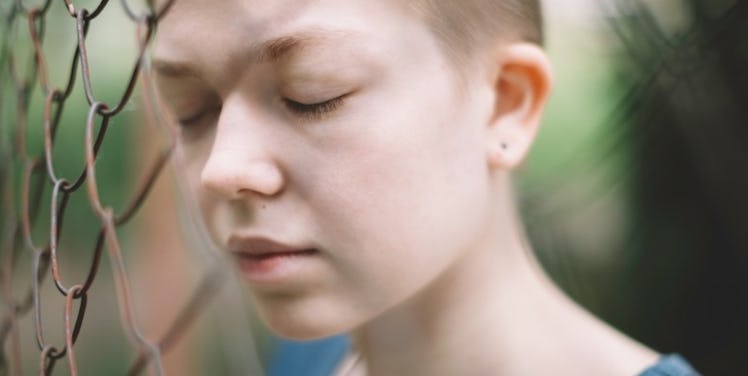
3 Things That Prove You're Not In Love, You're In A Codependent Relationship
A codependent relationship can be difficult to distinguish from a healthy, loving relationship.
Society tells us that relationships are built upon compromise and require give and take. But when does compromise cross into excessive emotional or physical reliance?
In a healthy, loving relationship, you like who you are. You and your partner want the best for one another and are able to nurture one another's growth.
For those who were not raised in a home where this kind of love was modeled, it can be more difficult to understand what that actually looks like.
Noted licensed psychotherapist LeslieBeth Wish, Ed.D, author of Smart Relationships and founder of www.lovevictory.com, says the best way to find out whether you are in a codependent relationship is to keep a journal.
In that journal, she recommends asking yourself several questions and keeping track of your responses. If, over time, you see any of these following signs, they indicate that you may be in a codependent relationship.
1. You Give Up Things That Are Important To You
In a codependent relationship, it can be difficult to speak up because you might be nervous that you are asking too much.
You might have been taught that love requires a sacrifice, and you've taken that to mean you have to sacrifice a lot of yourself. Or you might be afraid that asking for something you want will cause your partner to be overly hurt, critical, respectful, or cruel to you.
As a result, Dr. Wish says, codependents end up giving up on themselves and their interests to stay in a relationship that is actually bad for them.
In your journal, Dr. Wish says you should keep track of how your discussions unfold. In a healthy relationship, couples can problem solve and settle their differences without being disrespectful to one another.
According to Dr. Wish, a sign that you are in an unhealthy, codependent relationship is if "[your] discussions start out OK, but then, they end up with [you] being wrong — and wronged."
If you've given up many things that are important to you, and your partner is dismissive of you and your feelings, that is a sign of codependency.
2. You Tolerate Behavior That Is Hurtful To You
Dr. Wish says that most codependents suffer from "Death By 1,000 Accommodations" — meaning that you bend over backwards to make excuses for your partner to your friends.
When you're in a codependent relationship, chances are your friends have expressed some concerns about the person you're dating.
Because of that tendency to overly accommodate a codependent partner, you probably got super defensive and ignored their advice — even after the millionth time you've called them asking for it. You probably excused their behavior and said that you were the one who needed to change, or that it was your fault in the first place.
It's true that, sometimes, friends don't give the best relationship advice. However, keep track of whether these excuses come even when the things they do make you feel, as Dr. Wish says, "invisible, unworthy, disrespected, muzzled, or powerless."
She recommends rating, on a scale of one to five, how often you feel those negative emotions, but don't speak up because you were trained in one way or another to avoid confrontation.
"In a healthy relationship, you don't make excuses to yourself or others about your partner," says Dr. Wish.
You aren't insecure about the status of your relationship when it's a healthy one, and you're not overly concerned with anybody else's opinion. That's because, in a healthy relationship, you are granted the freedom to trust yourself.
3. You Stay Because "Nobody Else Would Put Up With You"
Oftentimes, Dr. Wish says, women stay in a codependent relationship that hurts them because they don't think they will find anyone better. This is a message that has been drilled into them from society or caregivers who did or said things that made them feel unimportant.
In a codependent relationship, a woman (or other partner) feels like nobody else would ever love her — and would rather be in an unhappy arrangement than be alone.
To do that, she becomes overly accommodating at her own expense. Dr. Wish says this is because "you should forgive and see the good in everyone."
Or, parents or caregivers may have taught women that men come first in a relationship. They may have made the women feel unlovable in some way, by insinuating that they were inherently flawed somehow — a difficult personality, for example.
People might also stay in a codependent relationship because they are ill and fear that nobody else would take care of them.
There might be an economic imbalance. They might not make enough money to support themselves, feel like they don't have enough education to get a better job, and fear losing the roof over their heads.
Dr. Wish says that if you were raised in a family where these behaviors were normal, "then you might feel more emotionally comfortable with a partner whose behavior is similar to your childhood."
That's why codependent relationships might feel "right" to you, even if you are unhappy. Her advice? Treat yourself as a friend.
"You would want your best friend and loved ones to be in a good relationship," says Dr. Wish.
That means being able to pursue the things that are important to you, and having the power to change those that aren't.